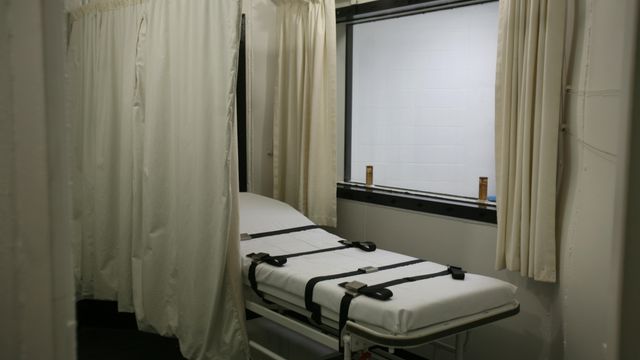House wants to subtract doctor from execution equation
House lawmakers took a step Tuesday toward ending the de facto moratorium on the death penalty in North Carolina.
Posted — UpdatedBy law, when someone is executed by lethal injection at Central Prison, a physician is supposed to be present to monitor an inmate's vital signs and confirm his or her death. But physicians balked at the requirement eight years ago, arguing that participating in an execution violates their medical ethics.
Although the state Supreme Court later ruled that the North Carolina Medical Board couldn't discipline a doctor for assisting in an execution, the dispute is one of several legal issues that has prevented the state from carrying out the death penalty since August 2006.
"The fact that doctors are not willing to be there for the execution has caused a real stumbling block for us," said Rep. Leo Daughtry, R-Johnston, chairman of the House Judiciary I Committee.
A physician would still have to pronounce the inmate dead.
"As long as we have capital punishment, it's our duty to make sure the law is enforced," Daughtry said.
There are 149 people on death row at Central Prison, including 18 who have been sentenced to die since the last execution.
"We have to move about in a way that continues to allow the state to use that tool that we have to make sure those who commit a heinous crime are punished for the crime they commit," said Rep. Justin Burr, R-Stanly.
Some lawmakers said, however, that a physician's presence is critical in case of a botched execution, such as those seen in other states in the last year, where medical attention is needed immediately to prevent suffering.
"We just saw some horrific scenes where the state was killing someone in an inhumane manner," said Rep. Larry Hall, D-Durham.
The Center for Death Penalty Litigation in Durham, which represents death-row inmates, said the bill wouldn't by itself restart executions in North Carolina. Pending bias claims under the now-repealed Racial Justice Act and constitutional questions surrounding state's execution protocol still need to be sorted out, officials said.
"We see any attempt to restart executions as unconscionable in light of concerns that there are innocent people on death row," center officials said in a statement, citing the recent exoneration of a man who spent 30 years on death row.
"If N.C. were to resume executions at some point in the future, removing the requirement that a doctor be present increases the risk that we will have a botched execution," they said.
The bill easily cleared the Judiciary I Committee and next heads to the House floor.
Related Topics
• Credits
Copyright 2024 by Capitol Broadcasting Company. All rights reserved. This material may not be published, broadcast, rewritten or redistributed.





